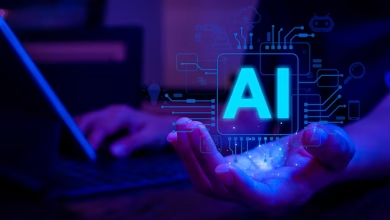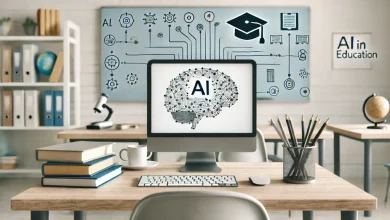Artificial intelligence is significantly transforming the beauty industry, from product development to customer engagement. In 2023, the global AI beauty market was valued at nearly $3.2 billion and is projected to reach $7.8 billion by 2028 (Vogue Business). This rapid growth highlights the significant impact of AI on shaping the future of beauty.
The Vogue Business 2025 100 Innovators: Beauty Disruptors list illustrates the significant changes taking place in the industry. The individuals on this list utilize AI to make beauty more personalized, develop eco-friendly products, and transform how brands engage with customers. Their work, ranging from AI diagnostics to virtual try-ons and new biotech formulas, demonstrates how technology and beauty are converging.
This article explores how AI is changing the beauty industry, with a focus on the leaders featured in the Vogue Business 2025 100 Innovators list. By examining their work, we can see how the future of beauty is becoming increasingly personal, inclusive, and driven by technology.
The Rise of AI in Beauty Personalization
In the early 2000s, the beauty industry began its digital transformation. Brands started establishing online presences, and e-commerce began to reshape consumer shopping habits. However, personalization was still in its infancy. Early attempts at customization were rudimentary, often relying on basic algorithms and static surveys to recommend products based on broad categories, such as skin type or age.
The 2010s marked a significant shift as the beauty industry began harnessing the power of data. The proliferation of smartphones and social media platforms provided brands with an unprecedented amount of consumer data. Companies started to leverage this information to offer more personalized experiences. Virtual try-on tools, powered by augmented reality (AR), became more prevalent, allowing consumers to visualize how products would look on their skin before making a purchase. Additionally, AI-driven recommendation systems began analyzing purchase history and preferences to suggest products more accurately.
Over time, what customers expect from beauty brands has changed significantly. Nearly 76% of people now want products that cater to their unique needs, such as their skin type, hair texture, or lifestyle (Vogue Business, 2025). This push for more personalized options has led many companies to utilize AI in everything from product development to their interactions with shoppers.
Now, let’s dive deeper into some of the frontrunners in the modern age!
Innovators Transforming Beauty Through AI
The Vogue Business 2025 100 Innovators: Beauty Disruptors list highlights how leaders use AI as a key part of their work, not just a new gadget. They are changing everything from how ingredients are sourced to how customers connect with brands. Three main trends stand out: using biotech for product development, creating digital and virtual personalization, and designing more inclusive experiences.
Biotech and Ingredient Innovation
One standout innovator is Joshua Britton of Debut, which is pioneering vegan alternatives to traditionally animal-derived ingredients, such as carmine (a red pigment typically derived from insects). By utilizing biotech and synthetic biology, Debut aims to maintain the performance, color, and sensorial qualities that consumers expect while meeting both ethical and sustainability criteria.
Oddity’s purchase of Revela, a biotech startup, is another example. Revela uses AI to find and develop new ingredients like probiotics, peptides, and proteins that help with skin and hair issues. By investing in Oddity Labs, the industry is showing real commitment to combining AI and biology.
These biotech innovations are important not only for their novelty, but because they can reduce reliance on traditional supply chains, lower environmental impact, and open up new possibilities for personalization (formulations tailored not just to skin/hair type, but to individual genetic, microbiome, or lifestyle markers).
Digital Personalization & Virtual Experiences
A second cluster of innovators is using AI to create richer, more interactive, and more personal beauty experiences.
Companies like Revieve are building AI + AR tools for skin diagnostics, virtual try-ons, and makeup advice. Their AI Makeup Advisor and AI Skincare Advisor allow users to visualize looks and routines in real time, making the online shopping experience far more decision-friendly
GHD (Good Hair Day) is another brand that has recently launched CurlFinder, an AI-powered styling recommendation tool that functions more like a digital salon consultation. Users input their curl type, styling goals, and the system produces tools or product suggestions accordingly.
These tools are changing the way people shop for beauty products. Instead of just browsing, customers now get more guidance and support.
Virtual try-ons, quizzes, and AI agents that learn over time personalize both the product and the path to purchase.
Inclusion, Shade Matching, and Consumer Trust
A third theme is about making personalization inclusive—not just for people with certain skin types or hair textures, but also for brands to become more responsive to underserved consumer segments, and to incorporate trust, ethics, and representation into their approach.
L’Oréal is one such company promoting inclusivity through AI-powered shade-matching technologies that detect thousands of skin tones. This addresses a long-standing criticism that many brands underserve individuals with darker or mixed complexions.
Also in the Beauty Disruptors list are figures who are deepening regional alignment—people like Gabby Chen at Florasis, Hasmik Panossian at Sephora Middle East**, etc.—who are blending global ambition with localised product, marketing, and shade/formulation needs.
In addition to inclusiveness, trust and transparency are recurring concerns. With more and more brands collecting skin data, conducting diagnostics, or utilizing AI to suggest personalized products, consumers are increasingly seeking clarity on data usage, bias mitigation, and ingredient safety. The most successful innovators on the Disruptors list are those who pair technological sophistication with clear communication and an ethical foundation.
The Impact on Consumers and Brands
AI-powered personalization is reshaping the beauty landscape in ways that go far beyond product recommendations. For consumers, the most visible impact is confidence in decision-making. Virtual try-ons and AI-driven skin diagnostics reduce the uncertainty that traditionally surrounds cosmetic purchases. According to a 2022 McKinsey report, brands that leverage advanced personalization see a 20–30% increase in customer satisfaction scores, as shoppers feel that the products they purchase are more closely aligned with their individual needs (McKinsey, 2022). This shift is particularly significant in the beauty industry, where a mismatch in foundation shade or skincare formula can erode trust quickly.
The impact on brand-consumer relationships is equally profound. AI allows companies to move away from a one-size-fits-all model toward a dynamic, dialogue-driven relationship. Instead of broadcasting products, brands can now co-create routines and experiences with customers, whether through chat-based recommendations, real-time AR interactions, or DNA-based product design. The payoff has been tangible: L’Oréal, for instance, has attributed part of its double-digit e-commerce growth to digital try-ons and AI diagnostic tools (L’Oréal Annual Report, 2023).
However, the transformation is not without trade-offs. While personalization enhances engagement and loyalty, it also raises concerns about data privacy and inclusivity. Consumers are increasingly questioning how their biometric, behavioral, or genetic data are stored and used. A recent survey by Cisco (2023) found that nearly 62% of consumers are concerned about the misuse of personal data in AI-driven systems. There is also the risk of algorithmic bias: if the training data skews toward lighter skin tones or specific demographics, recommendations may fail to reach large segments of the population. This undermines the inclusivity that many brands claim as a core value.
In short, AI-powered personalization provides consumers with more choice and accuracy than ever before, helping brands build loyalty, work more efficiently, and grow. However, because AI relies on personal data and large-scale models, it is crucial for companies to manage these tools carefully, ensuring that inclusivity, ethics, and trust remain at the heart of the beauty industry.
Looking ahead, AI is becoming much more than just a tool in the beauty industry. It is now driving how consumers and brands connect. The Vogue Business 2025 100 Innovators: Beauty Disruptors list highlights entrepreneurs and technologists who are taking personalization to new levels. Whether it’s biotech founders making skincare for each person’s unique needs or AI researchers creating virtual identities for beauty in the digital world, these leaders show the industry’s goal: to make beauty experiences as unique as each person.



